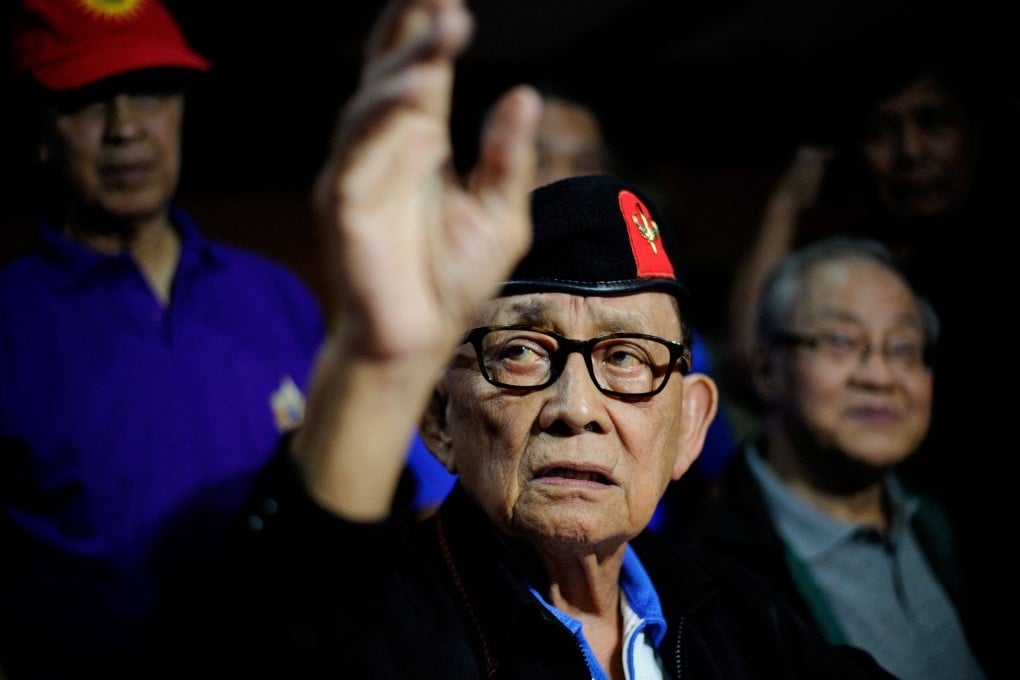Philippines’ ex-president Fidel Ramos, who helped end Marcos dictatorship, dies at 94
- He won the presidency in 1992 and was credited with steering the economy into a period of rapid growth until the 1997 financial crisis hit Southeast Asia
- Known as FVR, he served as defence chief in the first post-dictatorship government led by widow of the slain Senator Benigno Aquino Jnr, a prominent Marcos critic

Fidel Ramos, the former Philippine president who was head of the national police under Ferdinand Marcos Snr before defecting and joining the “People Power” protests that ousted the dictator in 1986, has died. He was 94.
Ramos died on Sunday, according to radio station DZRH and state-owned broadcaster PTV. The presidential palace confirmed the news.
“It is with great sorrow that we learn of the passing of former President Fidel V. Ramos,” said Trixie Cruz-Angeles, press secretary for President Ferdinand Marcos Jnr, son and namesake of the late dictator Ramos helped unseat. “He leaves behind a colourful legacy and a secure place in history for his participation in the great changes of our country, both as military officer and chief executive.”
Popularly known as FVR, Ramos served as defence chief in the first post-dictatorship government led by Corazon Aquino, widow of the slain Senator Benigno Aquino Jnr, a prominent Marcos critic.
He won the presidency in 1992 – the first election under the current constitution – and was credited with steering the economy into a period of rapid growth until the 1997 financial crisis hit Southeast Asia.
A career military officer, Ramos gained prominence in 1986 when he and then-Defence Minister Juan Ponce Enrile broke from Marcos, whom they accused of rigging elections that year to stay in power. Ramos said he defected because the dictator had prioritised personal interest and was no longer a capable commander-in-chief.
